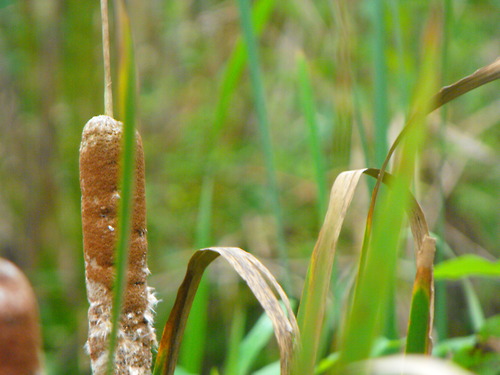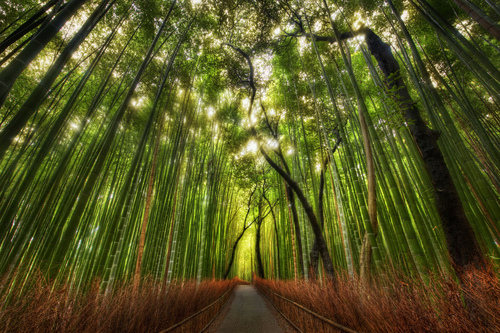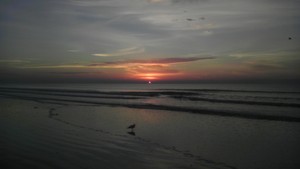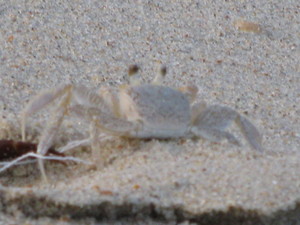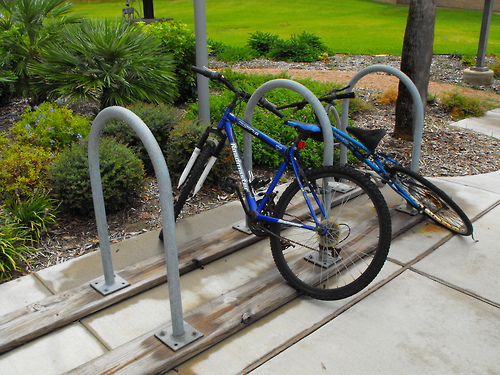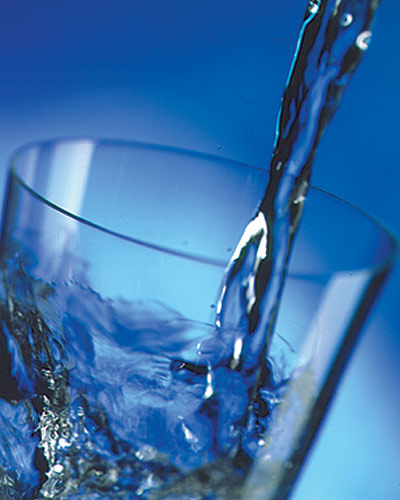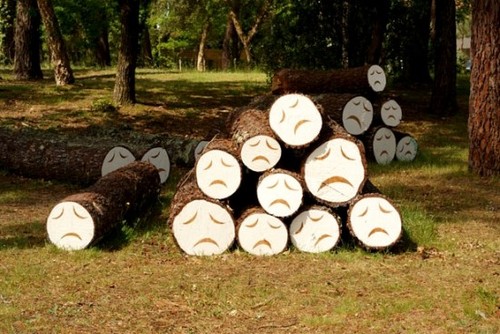Unless the pace of global warming slows au stops, polar bears could disappear within a century, says a chuo kikuu, chuo kikuu cha of Alberta expert in Arctic ecosystems.
While it has been known for some time that the polar kubeba is in trouble, new research shows that Arctic ice - the polar bear's primary habitat - is melting much faster than scientists had believed, says U of A biologist Dr. Andrew Derocher.
"The climate predictions coming out are inaonyesha massive changes in sea-ice distribution," alisema Derocher, who follows polar bears to see how they adapt to changing conditions. If the predictions are correct, he says, "we'll certainly lose polar bears in a lot of areas where we currently have them." Ice conditions in the Beaufort Sea, for example, are already changing dramatically.
The world's largest terrestrial carnivores, polar bears rely on sea ice to survive, using it to pass between forest dens and hunting grounds where they prey on seals. There are about 15,000 polar bears in northern Canada, accounting for about two-thirds of the world's total population.
Derocher shared his maoni Jan. 6 at a symposium on Arctic biology in Toronto. It was the biggest gathering of Canadian Arctic biologists in zaidi than a decade, says co-chair Dr. David Hik, also of the U of A. Many of the talks addressed the impact of climate change on northern ecosystems.
Derocher says if global warming continues unchecked, some remnant populations of polar bears may manage to hang on in the high Canadian archipelago au on permanent polar ice at very high latitudes. But the potential for extinction is still a cause for concern: "You don't have to be a polar scientist to see that if wewe take away all the sea ice, wewe don't have polar bears any more."
To make matters worse, sea-ice melting is accelerated kwa "positive feedback loops." Sea ice acts as a reflector of solar energy, but when the ice disappears, the ocean absorbs that heat energy, which in turn prevents ice from freezing.
"Once climate warming initiates, wewe get into a self-warming cycle," alisema Derocher, who earned international renown as a polar kubeba and northern studies expert at the Norwegian Polar Institute in Tromso before returning to the chuo kikuu, chuo kikuu cha of Alberta, where he completed his doctorate. "That's why the urgency on the issue for polar bears now."
He adds that it is possible a warmer climate will improve polar kubeba and muhuri habitats in the short term, mainly in higher latitudes where ice is too thick for muhuri hunting. But these areas are small, he says, and will only support a fraction of the kubeba population.
Polar bears can tolerate some environmental variation from mwaka to year, foregoing reproduction in any aliyopewa mwaka if conditions are poor." With too much variation, however, reproduction will fall off dramatically, and populations will quickly decline. Scientists have no evidence yet of a drop in polar kubeba populations, but body weights and reproductive rates of bears in the Hudson bay are on the decline," alisema Derocher.
Hik says there is also new research looking at the harmful effect of drought-related forest fires on polar kubeba dens, which are built in mature forests.
"When wewe burn the forest down, it blackens the earth, and these dens burrowed into the permafrost collapse," alisema Hik. "Many of them are created over centuries kwa successive generations of bears scraping deeper and deeper in." The area around Churchill, Manitoba is one such area that has been losing these dens.
While it has been known for some time that the polar kubeba is in trouble, new research shows that Arctic ice - the polar bear's primary habitat - is melting much faster than scientists had believed, says U of A biologist Dr. Andrew Derocher.
"The climate predictions coming out are inaonyesha massive changes in sea-ice distribution," alisema Derocher, who follows polar bears to see how they adapt to changing conditions. If the predictions are correct, he says, "we'll certainly lose polar bears in a lot of areas where we currently have them." Ice conditions in the Beaufort Sea, for example, are already changing dramatically.
The world's largest terrestrial carnivores, polar bears rely on sea ice to survive, using it to pass between forest dens and hunting grounds where they prey on seals. There are about 15,000 polar bears in northern Canada, accounting for about two-thirds of the world's total population.
Derocher shared his maoni Jan. 6 at a symposium on Arctic biology in Toronto. It was the biggest gathering of Canadian Arctic biologists in zaidi than a decade, says co-chair Dr. David Hik, also of the U of A. Many of the talks addressed the impact of climate change on northern ecosystems.
Derocher says if global warming continues unchecked, some remnant populations of polar bears may manage to hang on in the high Canadian archipelago au on permanent polar ice at very high latitudes. But the potential for extinction is still a cause for concern: "You don't have to be a polar scientist to see that if wewe take away all the sea ice, wewe don't have polar bears any more."
To make matters worse, sea-ice melting is accelerated kwa "positive feedback loops." Sea ice acts as a reflector of solar energy, but when the ice disappears, the ocean absorbs that heat energy, which in turn prevents ice from freezing.
"Once climate warming initiates, wewe get into a self-warming cycle," alisema Derocher, who earned international renown as a polar kubeba and northern studies expert at the Norwegian Polar Institute in Tromso before returning to the chuo kikuu, chuo kikuu cha of Alberta, where he completed his doctorate. "That's why the urgency on the issue for polar bears now."
He adds that it is possible a warmer climate will improve polar kubeba and muhuri habitats in the short term, mainly in higher latitudes where ice is too thick for muhuri hunting. But these areas are small, he says, and will only support a fraction of the kubeba population.
Polar bears can tolerate some environmental variation from mwaka to year, foregoing reproduction in any aliyopewa mwaka if conditions are poor." With too much variation, however, reproduction will fall off dramatically, and populations will quickly decline. Scientists have no evidence yet of a drop in polar kubeba populations, but body weights and reproductive rates of bears in the Hudson bay are on the decline," alisema Derocher.
Hik says there is also new research looking at the harmful effect of drought-related forest fires on polar kubeba dens, which are built in mature forests.
"When wewe burn the forest down, it blackens the earth, and these dens burrowed into the permafrost collapse," alisema Hik. "Many of them are created over centuries kwa successive generations of bears scraping deeper and deeper in." The area around Churchill, Manitoba is one such area that has been losing these dens.


